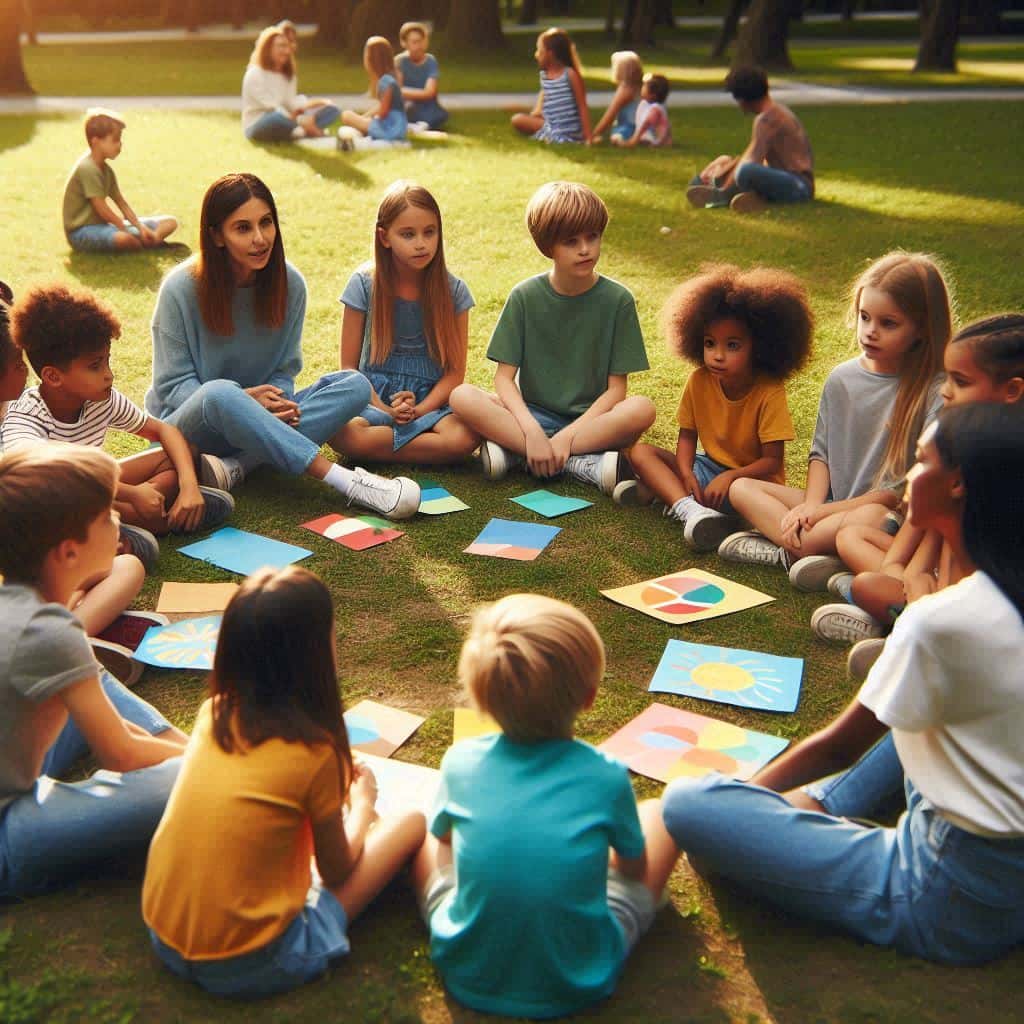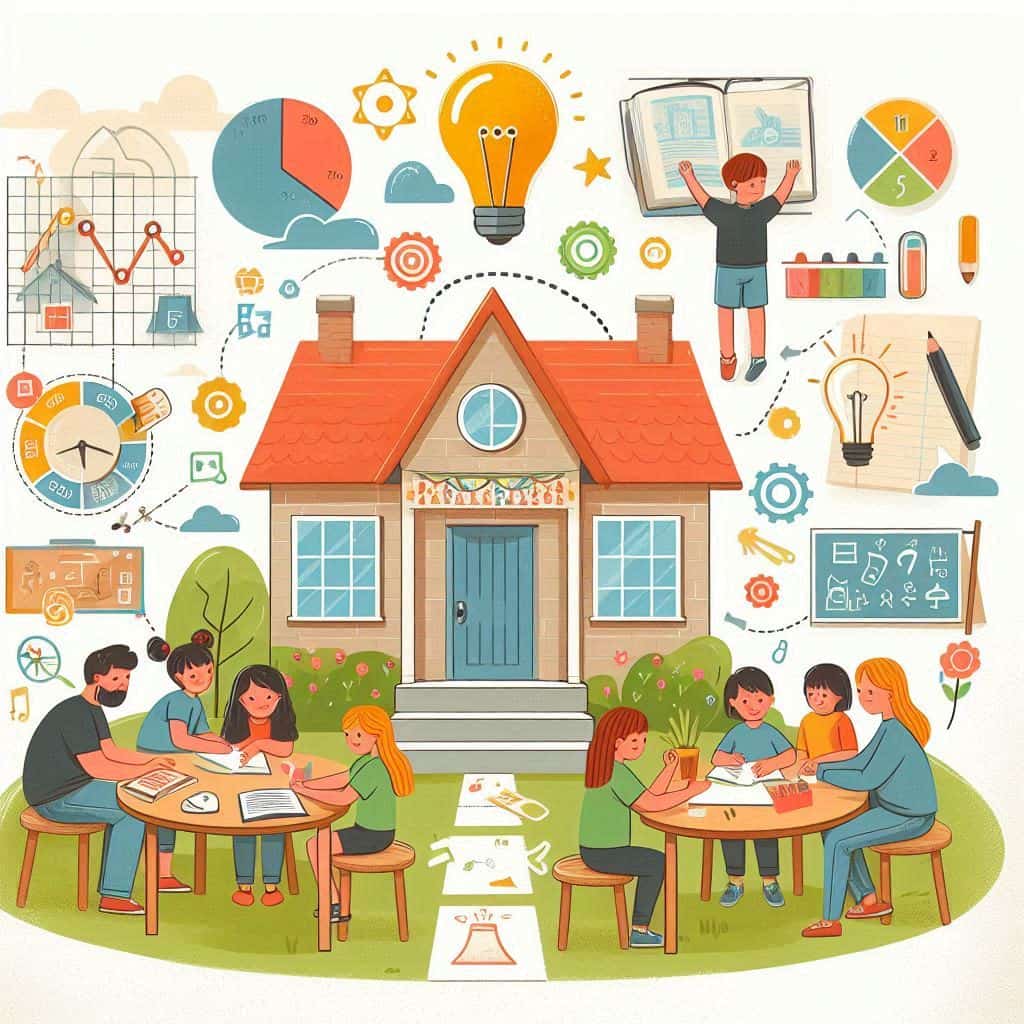Socialization is a critical aspect of a child’s development, shaping their social skills, emotional intelligence, and overall well-being. Homeschooling offers a unique approach to education that allows for personalized learning but raises questions about socialization opportunities. In this blog, we will explore the importance of socialization in homeschooling, strategies for community engagement, and the psychological principles behind effective socialization.

The Importance of Socialization in Homeschooling
Research by Medlin (2013) published in the Journal of Homeschooling and Education has found that homeschooled children often have strong social skills and are actively involved in community activities. This indicates that homeschooling can provide ample opportunities for socialization outside of traditional school settings. However, it is essential for homeschooling parents to be proactive in facilitating social interactions for their children.
Strategies for Community Engagement
One effective strategy for community engagement is to join homeschooling groups or co-ops. These groups often organize field trips, group activities, and social events, providing homeschooled children with opportunities to interact with peers. Additionally, involvement in extracurricular activities such as sports teams, clubs, and community service projects can help homeschooled children develop social skills and build friendships.

The Psychological Principles Behind Effective Socialization
Socialization is not just about being around other people; it’s about developing meaningful relationships and understanding social norms and cues. According to Vygotsky’s sociocultural theory, social interaction plays a crucial role in cognitive development. Homeschooled children can benefit from socialization opportunities that allow them to engage in meaningful interactions and develop a sense of belonging within their community.
Fostering Socialization in Homeschooling
In conclusion, socialization is a critical aspect of homeschooling that requires proactive engagement from parents. By joining homeschooling groups, participating in extracurricular activities, and fostering meaningful social interactions, homeschooled children can develop strong social skills and thrive in their community. Homeschooling offers a unique opportunity for personalized education, and with the right approach to socialization, homeschooled children can enjoy a well-rounded educational experience.
FAQs
Yes, homeschooling can teach social interaction to children. While homeschooling may not provide the same level of socialization as traditional schools, homeschooled children can still interact with peers through activities like sports teams, clubs, and community groups.
The effectiveness of homeschooling versus traditional schooling depends on the individual child and their needs. Homeschooling offers personalized attention and flexibility, which can benefit some children. However, traditional schools provide socialization opportunities and access to certified teachers, which can also be valuable.
Homeschooled kids can interact with their peers socially through activities like sports teams, clubs, and community groups. Many homeschooling families also participate in homeschooling co-ops, which provide opportunities for socialization and group learning.
Online education is better than traditional education for some students because it offers flexibility, accessibility, and the ability to learn at their own pace. It also allows for a wider range of course options and eliminates the need for commuting.
The effectiveness of online education versus traditional education depends on the individual student and their learning style. Some students may thrive in an online learning environment, while others may prefer the structure and socialization of traditional schools.
Homeschooling and traditional schooling are not mutually exclusive. Some families choose to homeschool part-time while also attending traditional school part-time, allowing for a mix of educational experiences.
The effectiveness of homeschooling versus traditional public education depends on the individual child and their needs. Homeschooling can offer personalized attention and flexibility, but traditional public education provides socialization opportunities and access to resources that homeschooling may not provide.
Yes, homeschooling is accepted in India. The Right to Education Act, 2009, which mandates free and compulsory education for children between the ages of 6 and 14 years, does not prohibit homeschooling.
Homeschooling can work in India with the right resources and support system in place. Many Indian families have successfully homeschooled their children, providing them with a well-rounded education tailored to their individual needs.
Research suggests that homeschooled children are not necessarily less socially aware. In fact, many homeschooled children are actively involved in community activities and have strong social skills. Socialization opportunities for homeschooled children can be facilitated through participation in extracurricular activities, community groups, and sports teams.

